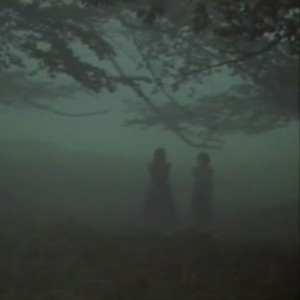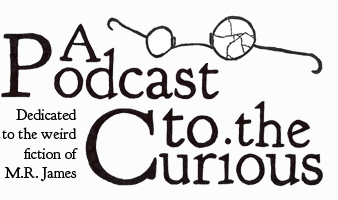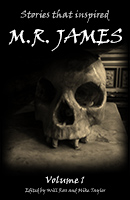 This week we tackle Lost Hearts by M.R. James, a spine-chilling tale featuring ghostly orphans! Talking rats! Diabolical alchemy! Gore! A shower scene! (sort of).
This week we tackle Lost Hearts by M.R. James, a spine-chilling tale featuring ghostly orphans! Talking rats! Diabolical alchemy! Gore! A shower scene! (sort of).
Also in this episode:
- Mike tweaks his hurgy gurdy around the house
- Will says ‘Dun Dun Duuunnn!’ more than is strictly necessary
- We both says ‘evocative’ more than is strictly necessary and then get really, really depressed
A big THANKS goes out to Kirsty Woodfield who brought a much-needed touch of class to the proceedings by doing an excellent job with the readings.
Show notes:
- Read Lost Hearts at thin-ghost.org
- Aswarby Hall on Google Maps
- St. Michan’s Church, Dublin
- Orpheus and the Orphic Poems
- The Worship of Mithras and Mystery Religions
- Neoplatonism
- Simon Magus
Podcast: Play in new window | Download
Subscribe: RSS
Tags: Alchemy, Aswarby Hall, Ghost Stories, Ghosts, Lost Hearts, M.R. James, Orphans, Sacrifice








I’m THRILLED that I stumbled upon this splendid podcast of yours! Feels like I’m sitting in a dark-paneled room, next to a fireplace, etc., etc., with you two, talking about one of my very favourite ghost story writers ever. What joy!!
Once again, another GEM; both the original story (duh) and your take on it. I guess I’ve taken the more simpler of views, regarding the other two children, that they were, for the most part, *warning* Stephen. Although, as James is often reported insisting that “the ghost should be malevolent or odious: amiable and helpful apparitions are all very well in fairy tales or in local legends, but I have no use for them in a fictitious ghost story” – so maybe my interpretation is somewhat flawed. In the end, I guess they *did* put the smack down on nasty ol’ Mr. Abney, *as* they were helping Stephen, so maybe a little of both takes are relevant. Hmmn… Anyway, GREAT review, gents, and I look so forward to the next one. Any timetable on that one? See? You’ve gotten me all worked up.
Thanks guys! Hope you liked episode three, too. I’m just editing Episode 4: The Ash Tree, should be out next week.
@bangdaifu
Yes, I LOVED episode 3 – listened to it last night with another fellow devotee of the genre and of M. R. James, in particular.
We’re both big fans of Robert Lloyd Parry’s portrayals of these stories and saw him perform live in the most intimate setting at Hemingford Grey Manor back in October 2007. Splendid.
I have just come across a note in a book about the Oddingly murders affair in Worcestershire of 1806-1830 where the judge involved in later trials, a certain Judge Littlewood was later said to be involved in an 1831 trial of bodysnatchers in which the accused were said to have killed an Italian street boy..it is the subject of a book by Sarah Wise (The Italian Boy), I wonder if this case was something that James had looked at and had taken some elements from for his story. Its a remote possibility…
The Wikipedia entry on Sax Rohmer cites someone who believes Rohmer’s story, “The Master of Hollow Grange”, is an homage to “Lost Hearts”. Having just read the former story, I disagree. The two share the idea of someone being invited to a remote house for nefarious purposes, but so do dozens, if not hundreds, of other stories. No ghosts appear in “Grange”, children are not menaced (the narrator is a war veteran), and the purpose is pseudo-scientific (apparently alchemical, although even that is disappointingly vague) rather than mystical. If Rohmer claimed this was an homage, it’s a poor one.
Another possible explanation of the actions of Phoebe and Giovanni, is in Mr Abney’s need to absorb the hearts of “at least three human beings below the age of twenty one years”. His immortality would be assured if he managed to get the third – Stephen’s – heart. The dead children are determined to prevent this – which is why they kill him but don’t take his heart. This raises an interesting point: the children, if I’m right, must share Mr Abney’s belief in the way to become immortal; which in turn raises some doubt about the narrator’s beliefs, I think.
Another thought about the plight of orphans: someone responsible for Stephen’s welfare has consigned him to the care of Mr Abney, seemingly without questioning the latter’s suitability as an adopter, and solely because he seems to be making a generous offer. Nowadays, in the post-Saville era, we regard any interest shown by bachelors in small children as suspicious. Presumably the early 19th century was a more innocent time – or did people just not care?
One of my favorites! I really like the plucky character of Stephen. If I’d just dreamt that I’d seen a well-aged corpse in the bathtub, I wouldn’t step down the hall on waking to see if it were really there. No, I’d burrow into the covers and stay there quivering until dawn!
I think it’s no coincidence that the attack on Mr. Abney happens just in time to save Stephen, but the attack might not be made on purpose to save Stephen. Mr. Abney hints to Stephen that this time of year is kind of dangerous, and he should make sure to close his window at night. That, in combination with Stephen’s wonderful impression that “an endless procession of unseen people were sweeping past him on the wind” makes me suspect that at this time of the year the “veil” between the living and the dead is perhaps thinner and more permeable than usual. That makes it the right time for Mr. Abney to cook up his evil recipes, but also the time when the ghosts of the two children are most likely to be able to get at Mr. Abney. Perhaps Mr. Abney’s preliminary ritual preparations for “absorbing” poor Stephen have made him (Abney) extra vulnerable, so that might explain why the children have not attacked in a previous year. And perhaps one vengeful ghost is not sufficiently powerful to successfully take on Mr. Abney, so Phoebe’s ghost couldn’t stop him before Giovanni was killed.
Further ruminations. I do wonder how Mr Abney managed to kill the two children without leaving a mess for Mrs Bunch to clear up – and also how he managed to hide the bodies without help. Or is Mrs Bunch his accomplice?
Great Podcast (as always, thank you for putting this website together). I really love the BBC TV version with Joseph O’Connor (what an amazing performance!).
Can anyone help with a problem about Mr Abney? He seems, in 1811, to believe in the genuineness of the Hermetic writings. But Isaac Casaubon, who died in 1614, had conclusively shown that they couldn’t be anything to do with Hermes, since they contained references to events long after the supposed date of Hermes. Is Mr Abney’s belief in the writings another instance of MRJ’s unease about his own scholarship? I recall Mssrs Murphy and Porcheddu commenting on this subject. I take it that they were referring to MRJ’s somewhat unorthodox interests, and thus to his dodgy status (as he saw it) as an autodidact.
I don’t know how Casaubon’s researches were viewed; but it does seem odd that he should be regarded as such an expert.
Perhaps the children were getting the essence of their own hearts back from him?
This one has always struck me as overrated. The old hat “Pagan means scary and evil” stuff, the super-obviousness of the obvious villain with a very obvious plot, the lack of adequate explanation as to why the dead children couldn’t have killed the villain before this point all make this a chore for me. The real saving grace was the sheer windbag pomposity of the vilian’s final message, but this didn’t thrill me or chill me.
Another great episode. Thanks guys. The discussion of Abney’s absolute lack of guilt regarding orphaned children made me think of the opening of Machen’s “The Great God Pan” – another horrific disregard for the lower classes done in the name of philosophical investigations:
“Consider the matter well, Raymond. It’s a great responsibility. Something might go wrong; you would be a miserable man for the rest of your days.”
“No, I think not, even if the worst happened. As you know, I rescued Mary from the gutter, and from almost certain starvation, when she was a child; I think her life is mine, to use as I see fit. Come, it’s getting late; we had better go in.”
Excellent podcast and a great piece of hurdy-gurdy music, too.